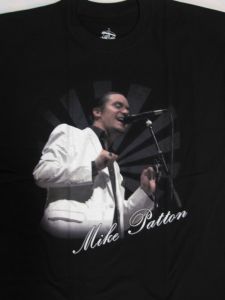
I am super pleased to share the law review article [ed: now available as of 12/12] I wrote with Bill Ford, Games Are Not Coffee Mugs: Games and the Rights of Publicity, to be published this fall in Santa Clara Journal of Computer and High Technology Law. Basically, what the present law states is that including real people without permission in a game is different than including them in a book, tv show, or movie.
Considering that two appellate courts (the Third Circuit in Hart and the Ninth Circuit in Keller) are now considering whether the use of athletes in video games requires permission, this is a very timely matter. This issue has been raised on video game blogs and was the focus of an episode of South Park. Or you could just read the article for the fandom related footnotes — including relevant references to Dungeons & Dragons, Korean dramas, Chick tracts, and Dillinger Escape Plan.

Are games more like coffee mugs, posters, and t-shirts, or are they more like books, magazines, and films? For purposes of the right of publicity, the answer matters because it determines whether games are treated as merchandise or expression. In the late 60s and early 70s, three cases confirmed the status of games as merchandise, rather than something equivalent to more traditional mediums of expression. As merchandise, games are considered in ways dissimilar to books; they are instead like celebrity embossed coffee mugs. What this means is that now games are viewed in the same way as a Justin Bieber mug when they include real people.
We argue in favor of First Amendment protection for the unlicensed use of people’s names and likenesses in games. Games as a medium have evolved significantly over the past four decades, calling into question the longstanding treatment of games for purposes of the right of publicity. Games in general are ready to be considered alongside books and movies. While it is possible for a particular game to be a mere image or identity carrier of a person’s likeness, games are often much more. For purposes of the right of publicity, games are not like coffee mugs.


